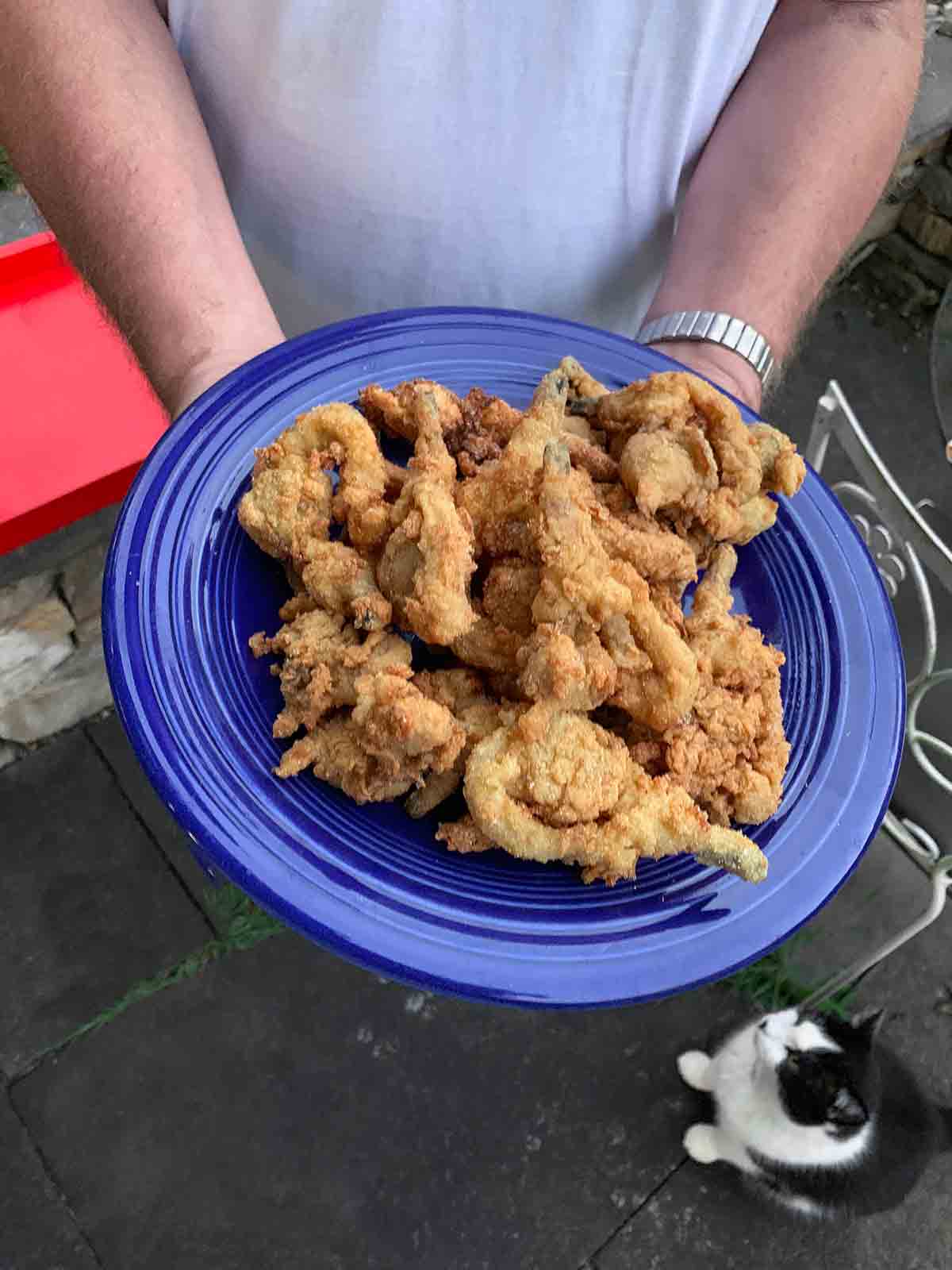
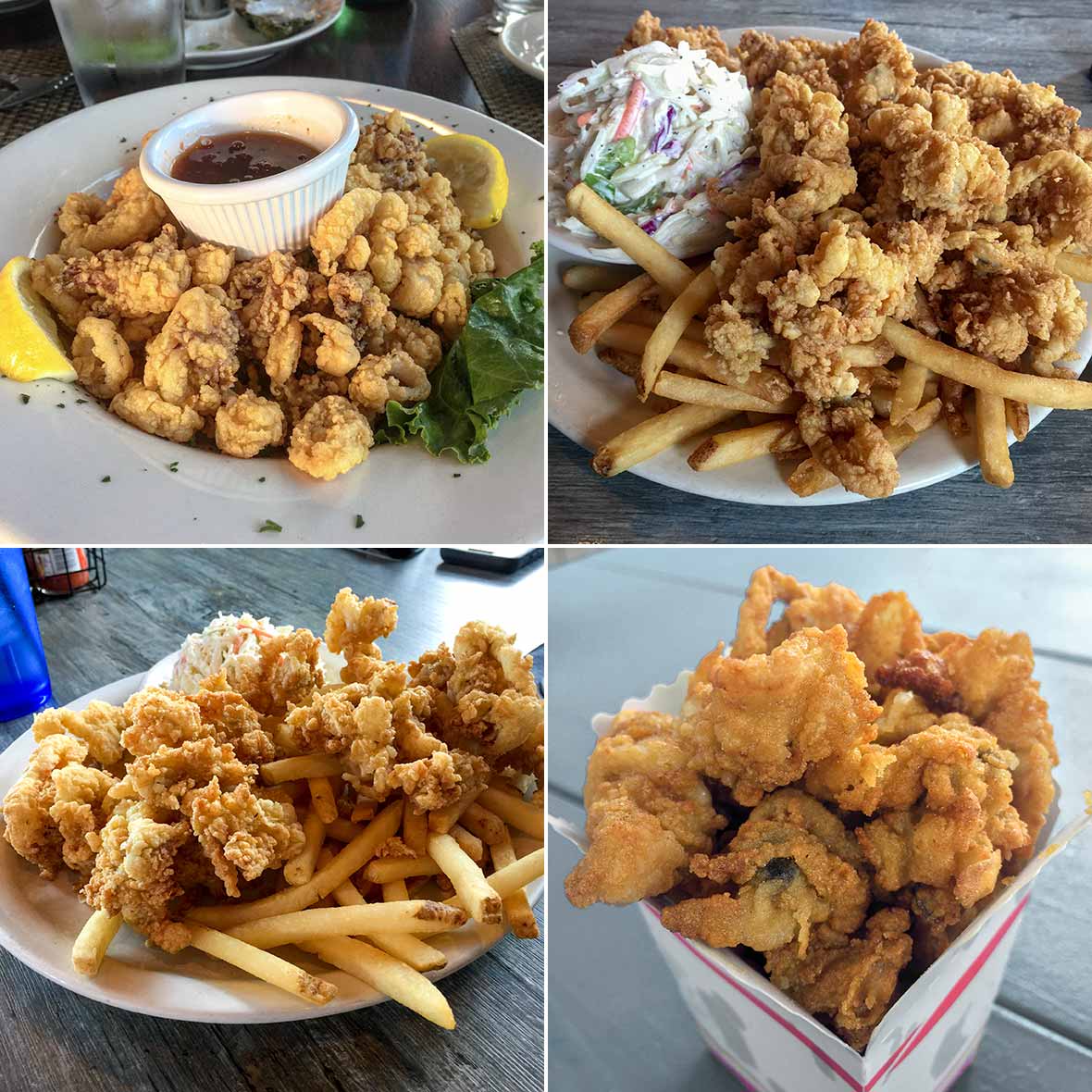
I’ve made no secret of my absolute addiction to fried clams—especially clam shack-style fried clams with big, luscious, profane whole bellies. I remember going as a kid to Macray’s, a local clam shack in Westport, MA., several Sundays during the summer. There my parents, grandparents, godparents, cousins, and I dove into pints of deep-fried oceanic goodness. My only regret as I tapped the last bits of crumbs from the greasy red-striped box into my mouth was that we couldn’t make them at home. That little snag meant this treat would be relegated to the hot, steamy days of a New England summer.
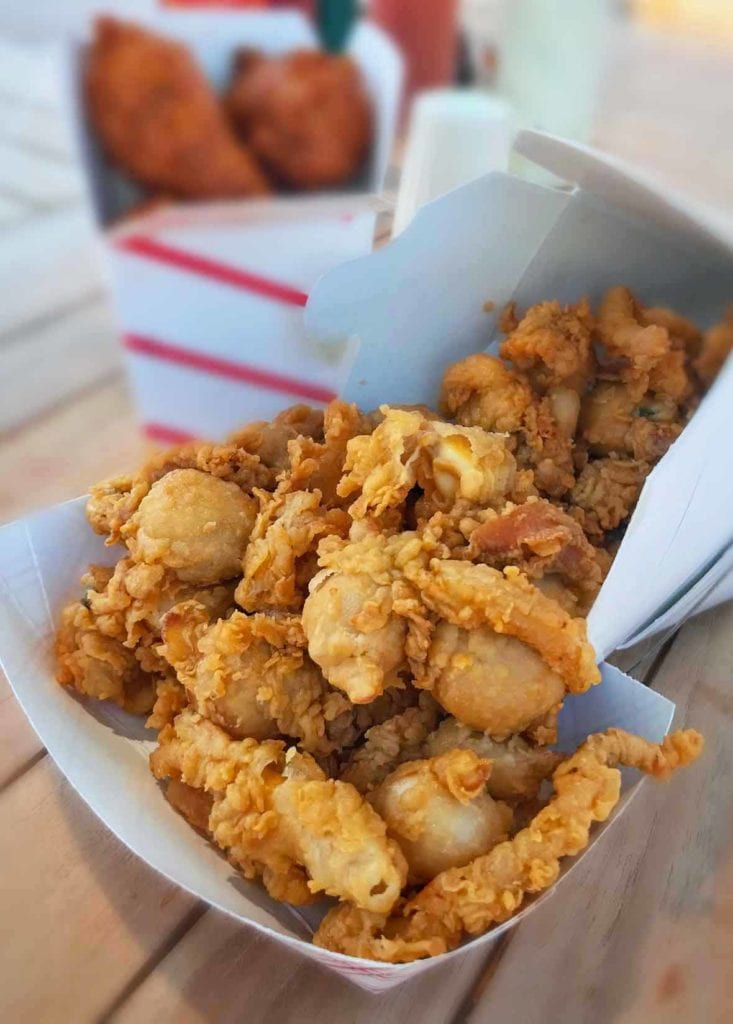
That is until I learned to shuck steamer clams at home. It’s a simple process of dipping the clams in boiling water for several seconds, which helps pop the shells but doesn’t cook the meat. The clams are then dumped into cold water. Then it’s a matter of taking a knife and releasing the clam from its shell.
When I made this recipe, adapted from the great Jasper White, I was tempted to doctor up the coating mix with all kinds of herbs and spices. (Yes, for a moment I thought of myself as the Colonel Sanders of Seafood.) “The secret to fried clams,” says Chickie Aggelakis, owner of The Clam Box in Ipswich, Mass., “is the flavor of the clams.” The coating and its crunch protect the tender belly meat. Mucking it up with spices—which is hard to resist—should be avoided at all costs.–David Leite
Clam Shack Style Fried Clams FAQs
Alas, no. Canned clams are fully cooked and therefore would fall apart. Plus, they’re tiny. You want large steamers for fried clams.
Again, no. Littlenecks and cherrystones are different types of clams. They’re chewier and don’t have the same texture and taste as steamers
Steamer clams are also called soft-shell clams, Ipswich clams, and Maine clams.
Corn flour is essentially very finely milled cornmeal made from the entire kernel of corn—the germ, the bran, and the endosperm. Corn meal—whether coarsely ground, medium grind, or finely ground—is not an acceptable substitute due to the textural difference. However, masa harina, which you can find in the Latin section of most supermarkets, is a perfectly fine swap.
A caution to our friends the Brits and Aussies and Canadians. We understand that in your corners of the world, “corn flour,” or rather “cornflour,” is synonymous with “cornstarch,” but that’s not what we’re talking about here. Cornstarch is ground from only the endosperm of the corn and makes a lousy coating for fried clams. Trust us.
Video: How to Shuck Clams for Fried Clams

Fried Clams, New England-Style
Equipment
- Deep-fry or candy or instant-read thermometer or an electric deep fryer, a wire-mesh skimmer or a pasta basket, a pair of tongs
Ingredients
For the New England style fry mix
- 1 cup corn flour, (not cornmeal; see FAQ above)
- 1 cup all-purpose flour
- 1 teaspoon fine sea salt or table salt
- 1/2 teaspoon freshly ground black pepper
- 1/4 teaspoon cayenne pepper
For the clams
- 1 1/2 pounds of shucked whole belly steamer clams
- About 6 cups peanut, canola, or other vegetable oil, for deep-frying
- 1 cup buttermilk, (either low-fat or full-fat)
- New England-Style Fry Mix, (above)
Instructions
Make the New England style fry mix
- Combine the flours, salt, and both peppers in a large mixing bowl and mix well. You’ll have more than you need for this recipe, so whatever is left over you can store in an airtight glass container in the refrigerator for several weeks or more.
Fry the clams
- In many cases, you'll be frying in batches to avoid the problems that can happen if you overcrowd your fryer. In anticipation of this, line a baking sheet with a clean brown paper bag, and preheat the oven to 250ºF (121°C).
- Heat 3 inches of oil to 375°F in a 4- to 5-quart Dutch oven over medium heat or in a deep fryer.
- While the oil is heating, pour the buttermilk into a large bowl, and put the fry mix in another. Drop the clams into the buttermilk and stir gently. Using a wire-mesh skimmer or a slotted spoon, carefully lift up a small batch (in this case, about half of the clams you're frying), allowing the excess buttermilk to drip back into the bowl.
- Drop the clams into the fry mix and gently toss them to coat evenly with the mix. Quickly dry off the skimmer.
- When the oil reaches temperature, lift the clams out of the fry mix with the skimmer, gently shake off the excess, and slip them carefully into the oil.
- Try to spread the food out in the pot so there is less chance of the pieces sticking to each other.
☞ TESTER TIP: The first few moments are crucial: let the seafood cook for 15 to 20 seconds without moving the clams (or the fryer basket)—if you do, some of the breading could fall off, making the dish greasy.
- Stir the clams so that they cook evenly, 1 to 1 1/2 minutes more. This also helps to loosen any pieces that might have stuck together. If anything sticks to the bottom of the pot, loosen it with tongs. Stay right there at the fryer, moving the seafood occasionally so it cooks evenly.
- Transfer the clams from the hot oil to the paper-bag-lined baking sheet to drain. You can keep the clams warm in the oven while you fry the second batch.
- Transfer the clams to a platter with lemon wedges and parsley sprigs–and fries aren't out of the question.
Video
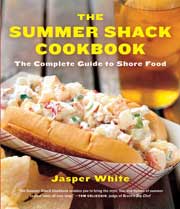
Nutrition
Nutrition information is automatically calculated, so should only be used as an approximation.
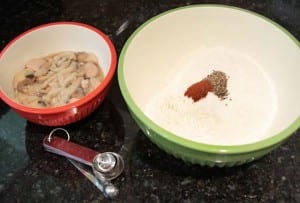
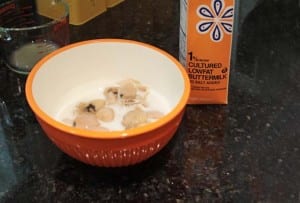
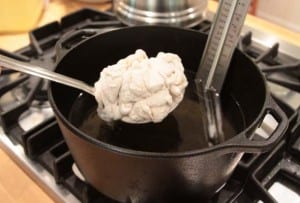
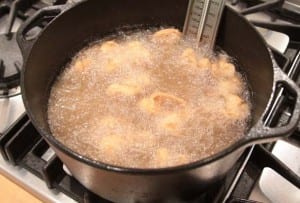
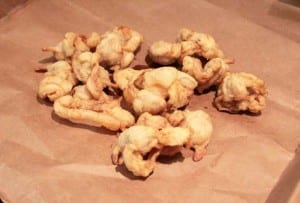










Is this the same breading mix for New England style fried haddock?
It’s a little different, Michael. Although fish fry batters can vary, most call for baking powder and/or cornstarch. We don’t recommend you use cornstarch here.
Yes. Or you can just coat with flour, dip in batter, then re-coat with flour. the corn flour adds a little more richness, so it’s personal preference.
Thanks, Brendan.
Is this the same recipe for haddock?
It’s a little different, Joss, as we don’t use cornstarch or baking powder here, which is often used in fish batter.
I fully realize this is a recipe for fresh raw clams. But if all we can get here are canned clams, could a person make this anyway and just cook them a tad less? I realize there would be no comparison to fresh but, my husband really likes clams, and we only have those canned ones.
Diane, I gotta tell you, I’ve never tried it, as we can always get fresh. That’s my way of saying I can’t promise stellar results, but I see no harm in trying!
Looking forward to making this recipe!! It calks for 1 1/2 lb clams. How many people would this serve as an appetizer and how many for a meal?
John, this should serve 3 to 4 as part of a meal, or 5 to 6 if serving smaller appetizer portions. Let us know how it turns out!